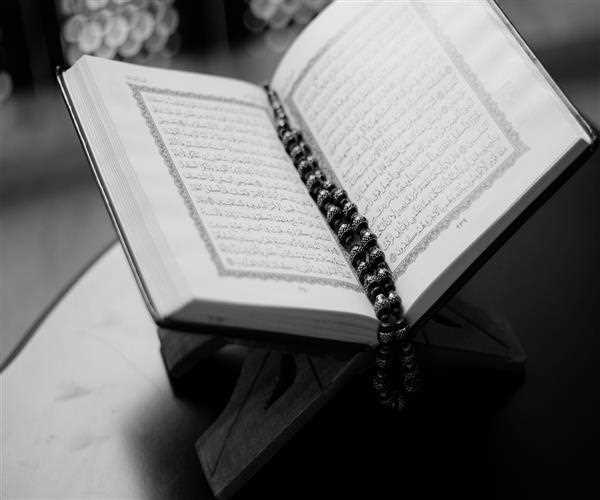
25-Jan-2024 , Updated on 1/26/2024 3:26:20 AM
Alcohol is banned in Islam, true?
Drinking alcohol is a disputed topic in Islamic teachings. The Quran clearly bans its use. But, some Muslims still drink alcohol. This shows questions about sticking to faith and the impact of culture and society.
What does the Quran say
In Surah Al-Baqarah, verse 219, Allah talks about alcohol use. He points out the problems and bans it. The verse shows that drinking alcohol is a bigger sin than any possible benefits. This is a core principle in the ban on alcohol in Islam. Many Quran verses talk about alcohol being banned. But, the key verse is in Surah Al-Baqarah (Chapter 2), verse 219. Here, Allah says:
يَسْأَلُونَكَ عَنِ الْخَمْرِ وَالْمَيْسِرِ ۖ قُلْ فِيهِمَا إِثْمٌ كَبِيرٌ وَمَنَافِعُ لِلنَّاسِ وَإِثْمُهُمَا أَكْبَرُ مِن نَّفْعِهِمَا ۗ وَيَسْأَلُونَكَ مَاذَا يُنفِقُونَ قُلِ الْعَفْوَ ۗ كَذَٰلِكَ يُبَيِّنُ اللَّهُ لَكُمُ الْآيَاتِ لَعَلَّكُمْ تَتَفَكَّرُونَ
Which translates to:
"They ask you about wine and gambling. Say, 'In them is great sin and [yet, some] benefit for people. But their sin is greater than their benefit.' And they ask you what they should spend. Say, 'The excess [beyond needs].' Thus Allah makes clear to you the verses [of revelation] that you might give thought."
Religious texts suggest that alcohol might have a few perceived benefits. However, its potential disadvantages and the negative actions it could lead to outweigh any possible advantages. For this reason, Islam strictly prohibits its consumption.
The Quran underscores alcohol's ban through different verses and hadiths (Prophet Muhammad's words, peace be upon him). They spotlight alcohol's harmful effects on people and societies. They stress on abstaining from alcohol to preserve spiritual and moral values.
Muslims and Alcohol: A Look at Past and Present
Historically, Muslims and leaders varied in their adherence to this alcohol ban. In Prophet Muhammad's era and the ensuing Rashidun Caliphate, they strictly banned alcohol. There were penalties for those violating this ban. Over time, changes in culture, societal norms, and personal understandings have led to some moving away from strict no alcohol rules.
Nowadays, Muslim attitudes towards alcohol come in all shapes and sizes. Many Muslims stick to the Quran's no alcohol rule. But, some drink even with Islam's ban. Neither region nor age group can fully explain this. It's influenced by a mix of tradition, social force, and personal beliefs.
The Impact of Culture and Peer Pressure
A significant reason why some Muslims may consume alcohol lies in the substantial influence of cultural norms and peer pressure. In places where drinking alcohol is common and socially okay, people might join in to fit in. It can feel like a need.
Also, customs and traditions, like parties or get-togethers, that include drinking play a role too. They make drinking seem normal in parts of the Muslim community.
Personal Views
How people understand religious teachings can affect if Muslims drink or not. The Quran clearly says no to alcohol, but some might see these rules in a different way or justify their actions with their views or situation.
Certain Muslims might take a more relaxed view of Quran rules against drinking. They could see drinking as okay in some situations. Some may rank personal wants or freedoms over religious should-dos, leading to a difference between what religion says and what they do.
A Problem for Religious Leaders
Drinking among Muslims is a tough issue for religious leaders and scholars who are responsible for enforcing Quran teachings in Muslim communities. Most leaders stress sticking to Quran principles, like the one against drinking, to promote spiritual health and moral behavior.
Still, dealing with the topic of drinking requires a careful way that thinks about various things influencing people's actions and what society says is normal.
Faith guides face the task of advancing Quranic principles all the while tackling the societal and cultural factors that lead to variations from religious norms.
Understanding the Significance
Despite Quranic bans, the common drinking habit among Muslims brings to light crucial queries about the crossroad of religion, customs, and personal convictions. It stresses the intricacies of fulfilling religious duties within different cultural practices and societal standards.
Moreover, this issue underlines the necessity for knowledge spreads and consciousness in the Muslim communities about Islam basics and the crucial nature of sticking to Quranic rules. Tackling the alcohol problem needs a diverse strategy that includes heightening religious literacy, challenging societal standards that oppose Quranic rules, and cultivating a supportive communal setting that respects moral ideals.
To sum up, the prohibition of alcohol is a core principle in Islam, consistently highlighted in the Quran and emphasized in religious teachings. Despite this, the widespread consumption of alcohol among Muslims raises the issue of reconciling religious obligations with cultural influences and personal beliefs. In order to address this issue, it is crucial to take concerted actions that promote religious education, challenge cultural norms that go against the teachings of the Quran, and cultivate supportive communities that prioritize upholding moral values. By actively tackling these challenges, Muslim communities can uphold the principles of their faith and nurture spiritual wellbeing among believers.

Content writer
I am a content writter !
Join Our Newsletter
Subscribe to our newsletter to receive emails about new views posts, releases and updates.
Copyright 2010 - 2026 MindStick Software Pvt. Ltd. All Rights Reserved Privacy Policy | Terms & Conditions | Cookie Policy